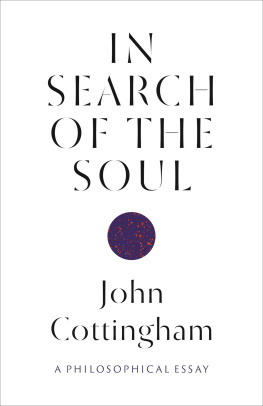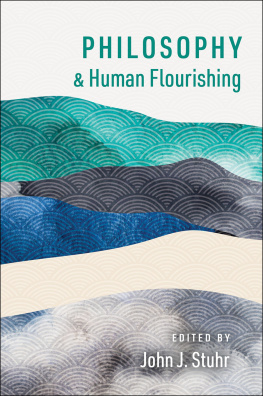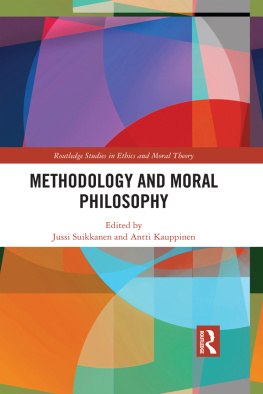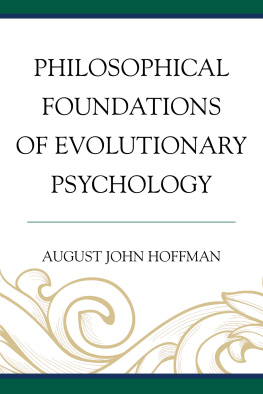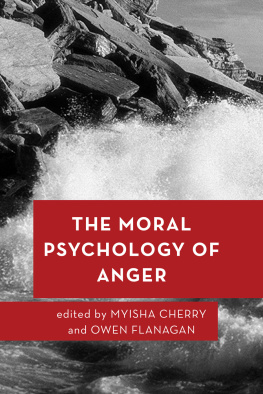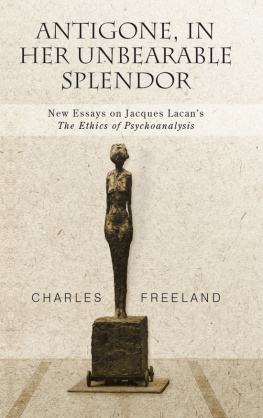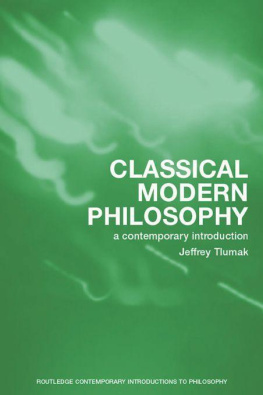Cover
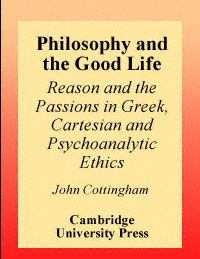
| title | : | Philosophy and the Good Life : Reason and the Passions in Greek, Cartesian, and Psychoanalytic Ethics |
| author | : | Cottingham, John. |
| publisher | : | Cambridge University Press |
| isbn10 | asin | : | 0521473101 |
| print isbn13 | : | 9780521473101 |
| ebook isbn13 | : | 9780511007019 |
| language | : | English |
| subject | Descartes, Ren,--1596-1650--Ethics, Ethics, Conduct of life, Reason, Emotions--Moral and ethical aspects, Ethics, Ancient, Psychoanalysis and philosophy, Psychoanalysis--Moral and ethical aspects. |
| publication date | : | 1998 |
| lcc | : | BJ1531.C68 1998eb |
| ddc | : | 170 |
| subject | : | Descartes, Ren,--1596-1650--Ethics, Ethics, Conduct of life, Reason, Emotions--Moral and ethical aspects, Ethics, Ancient, Psychoanalysis and philosophy, Psychoanalysis--Moral and ethical aspects. |
Page i
Can philosophy enable us to lead better lives through a systematic understanding of our human nature? John Cottingham's thought-provoking study examines the contrasting approaches to this problem found in three major phases of Western philosophy. Starting with attempts of Plato, Aristotle and the Stoics and Epicureans to cope with the recalcitrant forces of the passions, he moves on to examine the fascinating and hitherto little-studied moral psychology of Descartes, and his effort to integrate the physical and emotional aspects of our humanity into a rational blueprint for fulfilment. He concludes by analysing the insights of modern psychoanalytic theory into the human predicament, arguing that philosophy neglects them at its peril if it hopes to come to terms with the complex relationship between reason and the emotions. Lucid in exposition and unusually wide-ranging in scope, Philosophy and the good life provides a fresh and challenging perspective on moral philosophy and psychology for students and specialists alike.
Page iii
PHILOSOPHY AND THE GOOD LIFE
Page v
PHILOSOPHY AND THE
GOOD LIFE
Reason and the Passions in Greek,
Cartesian and Psychoanalytic Ethics
JOHN COTTINGHAM
University of Reading

Page vi
PUBLISHED BY CAMBRIDGE UNIVERSITY PRESS (VIRTUAL PUBLISHING) FOR AND ON BEHALF OF THE PRESS SYNDICATE OF THE UNIVERSITY OF CAMBRIDGE
PUBLISHED BY THE PRESS SYNDICATE OF THE UNIVERSITY OF CAMBRIDGE
The Pitt Building, Trumpington Street, Cambridge CB2 IRP, United Kingdom
CAMBRIDGE UNIVERSITY PRESS
The Edinburgh Building, Cambridge CB2 2RU, United Kingdom
40 West 20th Street, New York, NY 10011-4211, USA
10 Stamford Road, Oakleigh, Melbourne 3166, Australia
John Cottingham 1998
This edition John Cottingham 2001
This book is in copyright. Subject to statutory exception and the provisions
of relevant collective licensing agreements, no reproduction of any part may
take place without the written permission of Cambridge University Press
First published 1998
Printed in the United Kingdom at the University Press, Cambridge
Typeset in 11/12 1/2 pt Baskerville [VN]
A catalogue record for this book is available from the British Library
Library of Congress cataloguing in publication data
Cottingham, John, 1943
Philosophy and the good life: reason and the passions in Greek,
Cartesian, and psychoanalytic ethics/John Cottingham.
p. cm.
Includes bibliographical references and index.
ISBN 0 521 47310 1. (hardback) ISBN 0 521 47890 1 (paperback)
1. Ethics. 2. Conduct of life. 3. Reason. 4. Emotions Moral
and ethical aspects. 5. Ethics, Ancient. 6. Descartes, Ren,
15961650 Ethics. 7. Psychoanalysis and philosophy.
8. Psychoanalysis Moral and ethical aspects. I. Title.
BJ1531.C68 1998
170-dc21 98-27898 CIP
ISBN 0 521 47310 1 hardback
ISBN 0 521 47890 1 paperback
eISBN 0 511 00701 9
Page vii
For MLC, MGC and JLC
Page ix
Contents
| Acknowledgements | page xi |
| Note on References | xiii |
| Introduction | 1 |
|
| 1 | Philosophy and how to live | 5 |
| 2 | Ratiocentric Ethics | 29 |
| 3 | The ethics of science and power | 61 |
| 4 | Ethics and the challenge to reason | 104 |
|
| Notes | 167 |
| Bibliography | 218 |
| Index | 227 |
Page xi
Acknowledgements
A considerable portion of the work for this book was completed during my tenure of the Radcliffe Fellowship in Philosophy in 19934, and I should like to express my grateful thanks to the Radcliffe Trustees for their support.
In various places in the book, I have drawn on material from previously published articles: The Cartesian Legacy, in the Proceedings of the Aristotelian Society, sup. vol. LXVI (1992), pp. 121; The Self and the Body: Alienation and Integration in Cartesian Ethics, in Seventeenth-century French Studies, vol. 17 (1995), pp. 113; Partiality and the Virtues, in R. Crisp (ed.), How Should One Live? (Oxford: Clarendon Press, 1996), pp. 5776; Cartesian Ethics: Reason and the Passions, in the Revue Internationale de Philosophie, no. 195 (1996), pp. 193216; The Ethical Credentials of Partiality , Proceedings of the Aristotelian Society (19978), pp. 121; and The only sure sign: Descartes on Thought and Language', in J. Preston (ed.), Thought and Language (Cambridge: Cambridge University Press, 1998), pp. 2950.
I am most grateful for helpful comments and questions which were put to me when I presented material from various sections of the book at a number of philosophy colloquia and reading groups in Britain and overseas, including those at the Ben Gurion University of the Negev at Beer-Sheva, the Instituto de Investigaiones Filsosoficas of the Universidad Naional Autonoma de Mexico, the Esprit Cartsien Congress at the University of Paris-Sorbonne, the University of Cape Town, the University of St Andrews, Birkbeck College and University College London, the University of Sheffield, the University of Warwick, St Anne's College Oxford and St John's College Oxford. My thanks are also due to many
Page xii
friends and colleagues including John Andrews, Stuart Brown, Max de Gaynesford, Hanjo Glock, Brad Hooker, John Hyman, Susan James, Andrew Mason, David Oderberg, John Preston, Michael Proudfoot, Howard Robinson and Tom Sorell, for stimulating discussions which helped me clarify my ideas. I have been saved from many errors by Brad Hooker and Rosemary Wright, who were kind enough to read earlier versions of Chapters One and Two respectively, and by Jim Stone who generously commented on the whole typescript. I am also very grateful to Judith Ayling and Hilary Gaskin of Cambridge University Press for their encouragement, and to no less than four anonymous readers for the Press who raised many searching questions and made a large number of constructive suggestions concerning various portions of the argument. Finally, I should like to thank Andrew Leggett for his invaluable help in preparing the index. My debts to a host of scholars and philosophers who have written on the topics covered in this book are manifold and heavy, and I have endeavoured to acknowledge the most important influences in the text and the notes (though this does not imply that those so credited would agree with all or any of my views). The many faults that remain are my own.
Next page

